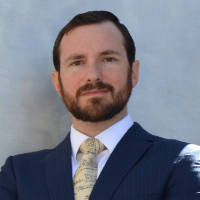Brazos Bend White Collar Crime Lawyer, Texas
Sponsored Law Firm
-
 x
x

Click For More Info:
-
Stephanie Alvarado Attorney at Law
100 N Central Expy Suite 805 Richardson, TX 75080» view mapCriminal Defense Law Fighting Against Unjust Prosecution
Attorney Stephanie Alvarado is there for her clients when help is needed right away. Helping people charged with crimes in Texas for over 20 years.
800-988-5471
Christopher Lankford
✓ VERIFIEDCriminal, DUI-DWI, Misdemeanor, Felony, White Collar Crime
Christopher Lankford is licensed to practice law in all Texas state courts, Federal court (Northern District of Texas), and the Supreme Court of the U... (more)
Robert Keating
✓ VERIFIEDCriminal, DUI-DWI, Felony, Misdemeanor, White Collar Crime
Attorney Rob Keating has successfully represented individuals charged with crimes ranging from serious felony offenses to minor municipal citations in... (more)
FREE CONSULTATION
CONTACTTyler Roderick Monahan
Family Law, White Collar Crime, Criminal, Personal Injury
Status: In Good Standing Licensed: 16 Years
Martha Akers Freeman
Wills, Family Law, White Collar Crime, Criminal
Status: In Good Standing Licensed: 37 Years
Gary L. Medlin
White Collar Crime, Misdemeanor, Felony, DUI-DWI, Merger & Acquisition
Status: In Good Standing
FREE CONSULTATION
CONTACT Stephanie Alvarado Richardson, TX
Stephanie Alvarado Richardson, TX Practice AreasExpertise
Practice AreasExpertise


